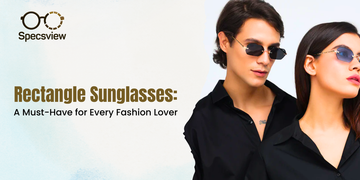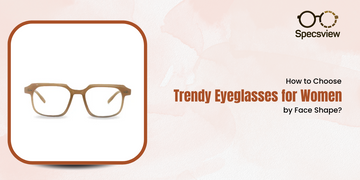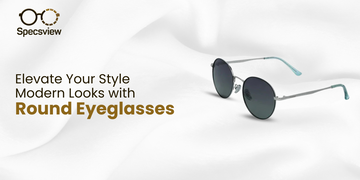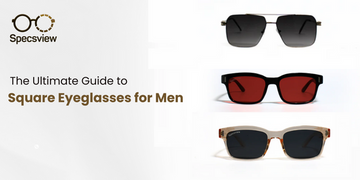You may not even realize that you need glasses. Even if your eyesight was perfect before, it may not be the same later on. According to the Academy of Ophthalmology, more than 150 million wear corrective eyewear. You may not know if you require glasses, so you should always visit your eye doctor to get a thorough examination.
What are the symptoms you might experience if you require glasses?
As you age, your vision will change. Not all changes in vision are abnormal. Normal changes in vision, such as needing more lighting to see clearly, or having trouble separating black from blue, are not abnormal and do not require glasses. There are some times when a change in vision is not normal and may require glasses.
Some people with eye problems don't show any symptoms. Others have clear symptoms. The symptoms of needing glasses vary depending on what kind of eye problem you have. Some of the most common symptoms are:
- Blurred vision
- Double vision
- Fuzziness is when objects lack defined lines, and appear a little hazy.
- Headaches
- Squinting
- Bright light creates "auras" and "haloes" around objects
- Eyestrain or tired eyes or irritation
- Distorted vision
- Driving at night and having trouble seeing is a problem
This list is not intended to be comprehensive. Call your eye doctor if you notice any differences in what you consider normal. You can have an eye examination to determine what is going on.
Types of Vision Problems
There are many types of vision problems Refractive errors are the most common type of vision problem, according to The National Eye Institute. This term includes:
- nearsightedness
- farsightedness
- astigmatism
- Presbyopia
The cornea and lens bend the light incoming so that it is concentrated on the retina at the back of your eye. You can see. Refractive error is when light cannot be focused onto the retina because of the shape and size of the eye. It can be caused by aging, changes in the cornea or eye shape or even changes to the eye.
These include age-related macular degradation, glaucoma and cataracts. These conditions cannot be treated by glasses.
Nearsightedness
Myopia is also known as nearsightedness. It occurs when an individual can clearly see objects that are close to them, but blurs when they are farther away. A person might find it difficult to make out faces on the television screen. In school, a child may have trouble reading the chalkboard.
The eyeball may be too long or the cornea too curved to cause this condition. Nearsightedness is estimated to affect 25 percent of Indians by the Optometric Association.
Farsightedness
Hyperopia or farsightedness causes objects far away to be mostly clear while objects nearer are blurred. The eyeball can be too short or the cornea abnormally shaped. According to the NEI's estimates, about 5-10 percent of Indians suffer from farsightedness.
Astigmatism
Astigmatism occurs when light is not evenly distributed on the retina. Images can be stretched or blurred. Astigmatism does not always cause distorted vision. It can occur at any age. Most people have mild astigmatism. However, some may need glasses to correct their astigmatism.
Presbyopia
Presbyopia affects nearly everyone. Presbyopia is a common symptom of ageing. Penn Medicine states that presbyopia usually begins between the ages 38 and 42. The eye becomes less flexible with age. The eye's ability to focus on objects nearer becomes impaired when it can't flex as much as before. As people age, they often need reading glasses or bifocals.
Conclusion
See an eye doctor if you experience any of these symptoms. It's important to have regular dilation eye exams, even if you don't experience any symptoms. This will ensure you can see clearly and keep track of your eye health. Only an eye doctor can perform a thorough eye examination to determine if you would benefit from wearing spectacles. Your doctor will discuss with you the type of lenses and other treatments that are best for you if the results show that you require glasses.





